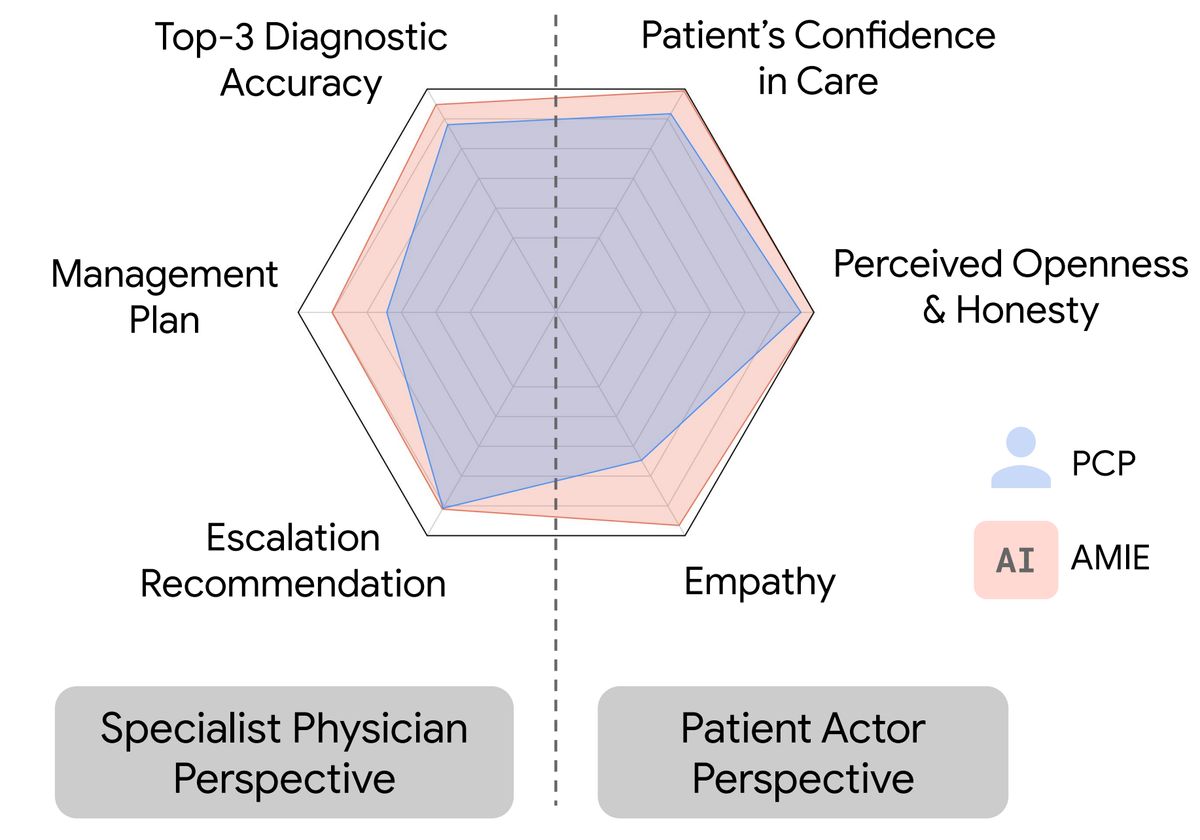Google AMIE's Vision Breakthrough: AI Outperforms Doctors in Diagnostic Accuracy

Introduction
Google's AMIE (Articulate Medical Intelligence Explorer) has achieved a landmark upgrade – the ability to interpret medical images during live patient interactions. This breakthrough, demonstrated in a Nature-published study, marks the first time an AI system has matched human clinicians' capacity to synthesize visual and textual data for diagnosis.
Technical Breakthrough
Unlike text-only predecessors, AMIE now uses Gemini 2.5 Flash with state-aware reasoning to:
- Request relevant images during consultations (e.g., 'Can you share a photo of that rash?')
- Achieve 94.7% accuracy in analyzing ECGs from the PTB-XL database
- Reduce diagnostic errors by 41% compared to previous text-only versions
Performance Validation
In 105 simulated OSCE exams with board-certified physicians:
- 65% top-3 diagnosis accuracy vs. 59% for human clinicians (Google Health)
- 86% appropriate treatment recommendations vs. 77% human baseline
- Patient actors rated AMIE 22% higher for empathy and clarity
Strategic Implications
This advancement challenges existing medical AI tools like IBM Watson Health by:
- Enabling true multimodal reasoning (text + images)
- Reducing specialist referral needs through precise triage
- Cutting diagnosis time from days to minutes for visual-based conditions
Limitations & Next Steps
While promising, Google emphasizes this remains a research tool. Real-world trials with Beth Israel Deaconess Medical Center begin June 2025. Key challenges include:
- Adapting to real-time video consultations
- Integrating with hospital EHR systems
- Addressing regulatory hurdles for AI-as-medical-device classification
Social Pulse: How X and Reddit View AMIE's Medical Vision
Dominant Opinions
- Clinical Optimism (58%)
- @HealthTechMD: 'AMIE's 94.7% ECG accuracy could save ERs millions annually through rapid triage'
- r/MedicalAI post: 'Finally an AI that doesn't just chat – actual diagnostic utility'
- Ethical Concerns (27%)
- @AISafetyNow: 'Who's liable when AMIE misses a melanoma? We need FDA III clearance, not hype'
- r/Futurology thread: 'EMRs will lock hospitals into Google's ecosystem – where's the open-source alternative?'
- Workflow Skepticism (15%)
- @NursePractitioner: 'Great for rural clinics, but urban ERs need real-time processing, not simulated 2D images'
Overall Sentiment
While most praise AMIE's technical leap, debates center on implementation risks versus its potential to democratize diagnostic access.